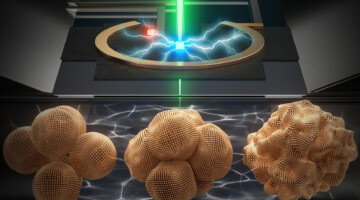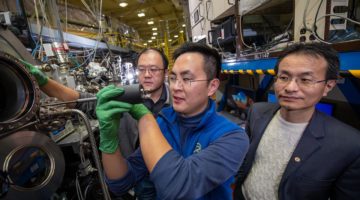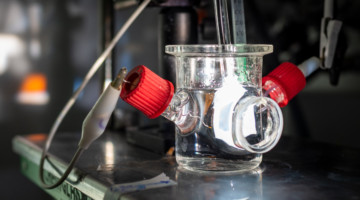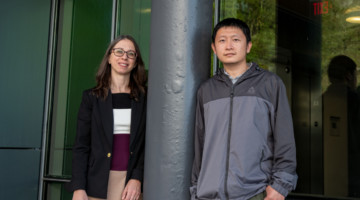Researchers at Berkeley Lab have made real-time movies of copper nanoparticles as they evolve to convert carbon dioxide and water into renewable fuels and chemicals. Their new insights could help advance the next generation of solar fuels. Read more »
How a Record-Breaking Copper Catalyst Converts CO2 Into Liquid Fuels
Scientists know that copper has a special ability to transform CO2 into valuable chemicals and fuels. But for many years, they struggled to understand how. Now, a research team has gained new insight by capturing real-time movies of copper nanoparticles as they convert CO2 and water into renewable fuels and chemicals: ethylene, ethanol, and propanol, among others. Read more »
A Photoelectrode Protection Scheme for Solar-Fuel Production
Microscopy, spectroscopy, and computational studies of a promising artificial-photosynthesis material led researchers to develop a model photoelectrochemical (PEC) cell with remarkable stability and longevity as it selectively converts sunlight and carbon dioxide into two promising sources of renewable fuels—ethylene and hydrogen. Read more »
New Device Advances Commercial Viability of Solar Fuels
A Berkeley Lab research team developed a new artificial photosynthesis device component that exhibits remarkable stability and longevity as it selectively converts sunlight and carbon dioxide into two promising sources of renewable fuels—ethylene and hydrogen. Read more »



